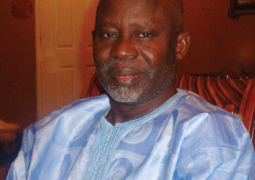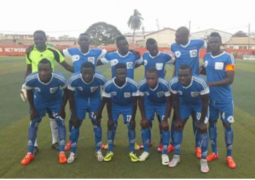Making
Up Missed Days of Ramadan
Making up missed days of Ramadan is an obligation that need not be fulfilled immediately because the time for fulfilling is very wide and one may perform it at any time. This is also the case with the fast of expiation. It has been authentically reported that ‘Aishah would make up her missed days during the month of Sha’ban (the month preceding Ramadan), and that she did not perform them immediately even if she had the ability to do so. Observing the fast of Ramadan and making up the days are the same with respect to the fact that if one day of Ramadan is missed, then only one day needs to be made up. There is no additional penalty.
They differ about the fact that when a person makes up the missed days he need not do so on consecutive days. This is because Allah says: “For him who is sick or on a journey, [the same] number of other days”--that is, whoever is sick or traveling and breaks the fast must fast the same number of days that he missed, consecutively or consecutively.
Allah has ordered the fast in a general manner without any restricting clauses. as for making up the missed days of Ramadan, ad-Daraqutni recorded from Ibn ‘Umar that the Prophet said: “If you wish, make them on nonconsecutive days and if you wish on consecutive days.”
If one delays performing the missed days of fasting until the next Ramadan comes, he is to fast the present Ramadan and then make up the days from the previous Ramadan.
There is no ransom payment to be made, regardless of whether the person delayed the fasting due to some acceptable excuse or not. This is the opinion of the Hanafiyyah and al-Hassan al-Basri. Malik, ash-Shaf’i, Ahmad, and Ishaq agree that there is no ransom payment if the fasting was delayed due to some excuse, but they differ when the fasting was delayed without any acceptable excuse.
In such a case, according to them, the person should fast the present Ramadan and then make up the days he missed from the previous Ramadan along with a ransom payment of a mudd of food given in charity each day.
It should be noted that they have no acceptable evidence for that opinion. Apparently, the correct opinion is that of the Hanafiyyah, as there is no lawmaking without an authentic legal text to support it (that is, a Qur’anic verse or hadith).
Whoever dies and still had some days of Ramadan to make up
The scholars agree that if an individual dies and has missed some prayers during his life, his guardian or heir is not to perform those prayers on his behalf. Similarly, if one does not have the ability to fast, no one is to fast for him while he is alive. There is a difference of opinion over the case of one who dies and has not made up some days of fasting although he had the ability to do so.
Most scholars, including Abu Hanifah, Malik, and the Shaf’iyyah, say that the guardian or heir is not to fast on such a person’s behalf, but is to feed one person a day for the missed days. The chosen opinion, however, among the Shaf’iyyah is that it is preferred for the guardian to fast on the deceased’s behalf, thus fulfilling his duty. There is therefore no need for him to feed anyone.
The meaning of guardian is near relative, whether it be an agnate or an heir or someone else. If a non relative fasts for the deceased, it will only be valid if he got the permission of the guardian.
The proof for the preceding is what Ahmad, al-Bukhari, and Muslim recorded from ‘Aishah. The Messenger of Allah, upon whom be peace, said: “If one dies and has some fasts to make up, then his guardian’ should fast on his behalf.” Al-Bazzar added the words: “If he wishes to do so, while Ibn ‘Abbas related that a man came to the Prophet and said: “O Messenger of Allah, my mother died and a month’s fasting was due from her. Should I fast on her behalf?” The Prophet asked: “If your mother had a debt would you fulfill it for her?” He said, “Yes.” The Prophet observed: “A debt to Allah has more of a right to be fulfilled.” This is related by Ahmad, At Tirmizhi, an-Nasa’i, Abu Dawud, and Ibn Majah.
An-Nawawi [one of the most knowledgeable of the Shaf’iyyah] says: “That statement is the most authentic one, and we follow it. This is the opinion that has been determined to be correct according to our companions in both hadith and fiqh.”
Places where the day is extremely long and the night is short
Scholars differ about what the Muslims who are in areas where the day is extremely long and the night is short should do. What timings should they follow? Some say they should follow the norms of the areas where the Islamic legislation took place--that is, Makkah or Madinah. Others say they should follow the timings of the area that is closest to them which has normal days and nights.
Night of Qadr, its virtue
The night of qadr is the most virtuous night of the year. Allah says in the Qur’an: “We revealed it on the night of power [that is, qadr]. What will tell you what the night of power is? It is better than a thousand months.” Any action therein, for example, reciting the Qur’an, making remembrance of Allah, and so on, is better than acting for one thousand months which do not contain the night of qadr.
Night of Qadr, it is preferred to seek this night
It is preferred to seek this night during the last ten nights of Ramadan, as the Prophet, upon whom be peace, strove his best in seeking it during that time. We have already mentioned that the Prophet would stay up during the last ten nights, would wake his wives, and then would remain apart from them to worship.
Night of Qadr, which night is it?
Scholars hold different opinions as to the night which is the night of qadr. Some are of the opinion that it is the 21st, some say the 23rd, others say the 25th and still others say it is the 29th. Some say that it varies from year to year but it is always among the last ten nights of Ramadan. Most scholars, though, vouch for the 27th.
Ahmad recorded, with a sahih chain, from Ibn ‘Umar that the Prophet said: “He who likes to seek that night should do so on the 27th. Ubayy ibn K’ab said: By Allah, and there is no God but Him, it is during Ramadan--and He swore to that--and by Allah, I know what night it is. It is the night during which the Prophet ordered us to make prayers, the night of the 27th. Its sign is that the sun rises in the morning white and without any rays.” This is related by Muslim, Abu Dawud, Ahmad, and by at-Tirmizhi who called it sahih.
Night of Qadr, praying and making supplications during the night of Qadr
Al-Bukhari and Muslim record from Abu Hurairah that the Prophet, upon whom be peace, said: “Whoever prays during the night of qadr with faith and hoping for its reward will have all of his previous sins forgiven.”
As to the supplication during the night of qadr, ‘Aishah said: “I asked the Messenger of Allah: ‘O Messenger of Allah, if I know what night is the night of qadr, what should I say during it?’ He said: ‘Say: O Allah, You are pardoning and You love to pardon, so pardon me.’ “This is related by Ahmad, Ibn Majah, and by At Tirmizhi, who called it sahih.
To be Continued



